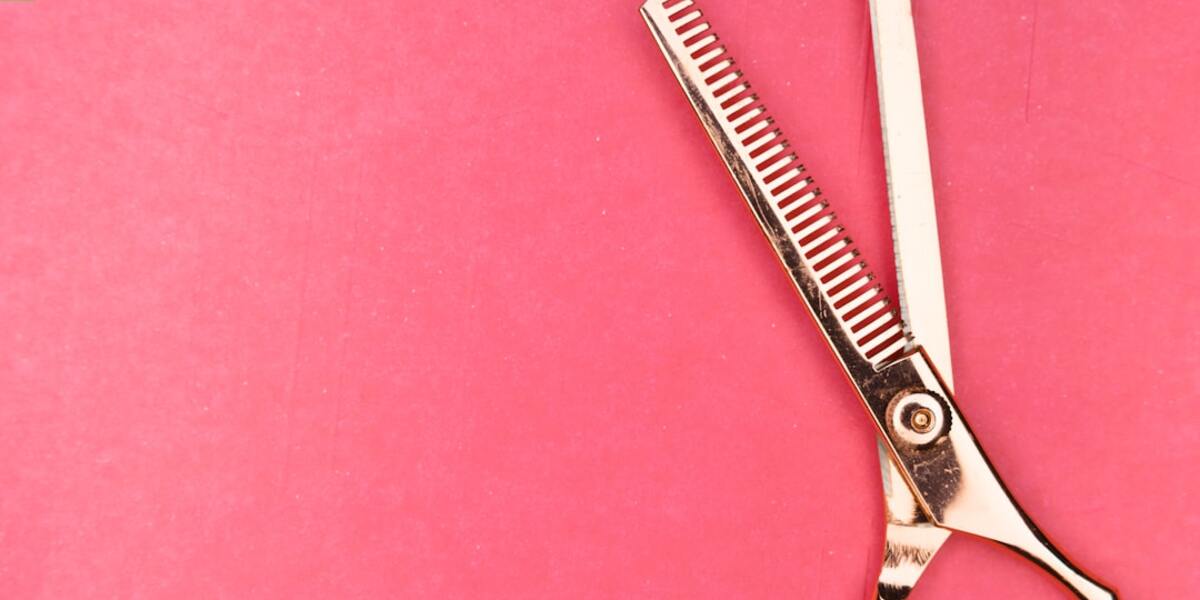Rheumatoid Arthritis Hair Loss Treatment: A Comprehensive Review and Guide
Experiencing hair loss can be distressing, and when it’s linked to a condition like rheumatoid arthritis, it’s even more overwhelming. Rheumatoid arthritis hair loss treatment has become an essential subject of research with millions globally facing this issue. This blog post aims at providing you a comprehensive guide to understanding and managing such instances.
In the following sections, we will delve into various aspects related to rheumatoid arthritis-induced hair loss while focusing on its causes, symptoms and most importantly – treatments. From natural remedies to advanced medical procedures – every plausible solution for treating your concerns would be discussed in detail.
Did you know?
Fact: A study by the National Rheumatoid Arthritis Society found that almost 50% of sufferers reported experiencing hair loss, a side effect not widely acknowledged.
Understanding the Link Between Rheumatoid Arthritis and Hair Loss
Rheumatoid arthritis, an autoimmune disorder causing inflammation and pain in the joints, has been increasingly linked to hair loss. One may wonder how these two seemingly unrelated conditions could be connected; however, understanding this link uncovers new possibilities in treating hair loss associated with rheumatoid arthritis.
The connection comes down to the body’s inflammatory response triggered by Rheumatoid Arthritis (RA). The immune system attack on its own tissues not only affects your joints but can also lead to severe side effects such as fatigue and weight loss. More surprisingly though is that it can impact your scalp health too–actually disrupting normal follicular function leading to a thinning or complete cessation of hair growth.
Certain drugs used to treat RA (Rheumatoid Arthritis) can cause temporary or permanent hair loss due to their harsh nature. On the other hand, medical professionals have discovered substances in existing treatments that both combat joint inflammation and stimulate hair regrowth after treatment. This dual solution has the potential to reduce symptoms and promote healthier hair during the post-treatment recovery phase. The discovery highlights the importance of continued research into more effective therapies for hair loss caused by rheumatic diseases like Rheumatoid Arthritis, offering hope to patients worldwide who suffer from this dual affliction.
Causes of Hair Loss in Rheumatoid Arthritis Patients
Rheumatoid Arthritis (RA) is an autoimmune disorder that comes with several symptoms, among which hair loss isn’t uncommon. There are various reasons why individuals experiencing RA may encounter abnormal hair fall.
Firstly, the disease itself can precipitate hair loss. Our immune system wrongly attacks our own cells when we have Rheumatoid Arthritis; this includes our skin and scalp cells too. The result of such internal cell damage, in many instances, is noticeable thinning or shedding of the tresses.
Secondly, it’s often the medications used to manage RA that contribute significantly towards alopecia. For instance, Methotrexate and Leflunomide – two drugs commonly prescribed for treating rheumatoid arthritis – list hair loss as a potential side effect. As these pharmaceutical options need to be taken consistently over long periods to suppress inflammations effectively; they might lead to considerable reductions in your locks’ density and volume after prolonged usage.
Thirdly, stress plays a crucial part in accelerating baldness amongst those affected by chronic diseases like RA where coping mechanisms vary widely from person-to-person thereby potentially accelerating their follicular fallout rate due to raised cortisol levels circulating within them persistently during flare-ups or remissions alike.
Evaluating How Autoimmune Disorders Affect Hair Growth
The connection between autoimmune disorders and hair growth is a significant subject of study for medical professionals across the globe. Rheumatoid arthritis (RA), one such disorder, doesn’t directly cause baldness but it’s seen indirectly to affect our tresses.
Through intense scientific studies, we know that RA produces inflammatory chemicals in the body which can disrupt normal hair cycles. Hair follicles are sensitive structures; they tend to respond negatively to any form of physical or biochemical stress, leading sometimes into what doctors refer as “telogen effluvium”, a temporary phase of increased shedding and thinning due to disrupted hair cycle rhythms.
Furthermore, certain medications used in managing rheumatoid arthritis symptoms have been linked with causing extra strain on your locks. Methotrexate and leflunomide are two such drugs often prescribed for controlling inflammations caused by RA – unfortunately, these powerful substances could potentially trigger diffused alopecia too!
But rest assured! It’s 2023 now and science has already made commendable strides towards addressing this issue specifically targeting those suffering from rheumatoid arthritis-induced hair loss.
Researchers today focus their efforts on developing tailored treatments aimed at balancing inflammation levels while nurturing your scalp back to health – creating an optimal environment allowing natural regrowth processes take place unhindered amidst all turmoil going inside your body because of this arduous ailment known as ‘Rheumy Arthritis’.
Medical Solutions for Managing Rheumatoid Arthritis-Induced Alopecia
Rheumatoid Arthritis (RA) is a challenging autoimmune disease that can induce various complications, including alopecia or hair loss. The phenomenon occurs when the body mistakenly misidentifies healthy cells for foreign invaders and attacks them. As taxing as it might be, finding effective treatments to manage this RA-induced condition has been an area of focus in modern dermatology.
Topical immunotherapy presents itself as a viable medical solution for managing rheumatoid arthritis-induced alopecia. Dermatologists commonly use potent chemicals like diphencyprone to stimulate an allergic reaction; hence triggering the immune system’s response away from hair follicles towards skin inflammation instead. This diversion offers ample time for regrowth of lost hair amidst reduced internal competition within your scalp environment.
Topical immunotherapy provides one remedy, but corticosteroid injections offer another quick relief option by calming overactive immune responses in affected areas and minimizing damage. Specialists administer these directly to the thinning parts of your scalp. They produce fast results, with noticeable changes after several sessions; however, they necessitate monitoring for potential side effects. Skin lightening around the injection sites stands as the most significant side effect. Nonetheless, with careful professional oversight, this issue becomes manageable and can result in substantial visible improvements.
Pharmacological Interventions to Reduce Hair Thinning
In recent times, there has been significant progress in the development of pharmacological interventions to impede hair thinning caused by rheumatoid arthritis. For those grappling with this condition, here’s a list of current and effective treatments that may help.
1. Starting off is methotrexate – it’s an immunosuppressant drug commonly prescribed for managing symptoms related to rheumatoid arthritis including alopecia or hair loss. Methotrexate reduces inflammation and prevents joint damage but also promotes hair growth as its secondary function.
2. Hydroxychloroquine has proven efficacy against autoimmune diseases like RA and Lupus besides promoting healthier locks when used judiciously under medical supervision.
3. Prednisone (a type of corticosteroid) can mitigate inflammation effectively thereby reducing pain while simultaneously combatting induced-alopecia associated with Rheumatoid Arthritis conditions – offering dual benefits indeed!
4.Azathioprine: This medication works by suppressing your immune system which comes handy not just in controlling painful flare-ups from rheumatoid arthritis but also preventing further hair fall linked to the same.
The Role of Topical Treatments in Restoring Scalp Health
Research and development of these products have increased, especially focusing on effective ingredients that can halt hair loss and stimulate new growth. Consider the following topical treatments:
One of the most popularly used substances for treating hair loss, minoxidil increases blood flow to your follicles aiding in their revival.
Hydrocortisone is one such steroid which works by reducing inflammation around the hair follicles making it easier for them to function normally again.
A synthetic substance shown promising results by promoting skin cell growth thus boosting healthier conditions for your strands’ regeneration.
A retinoid useful not only against psoriasis but also shows potential effects when dealing with Alopecia Areata often associated with Rheumatoid Arthritis patients.
For best outcomes, ensure you apply these topically under expert guidance as each individual’s response might vary depending upon various factors like age, severity etc. It’s important also to note that continual usage could be necessary – stopping treatment may reverse any benefits gained during therapy.
Lifestyle Adjustments to Mitigate Rheumatoid Arthritis Related Hair Loss
Living with rheumatoid arthritis can come with several unexpected challenges, and one distressing symptom that often gets overlooked is hair loss. While there’s no universal cure-all for this condition, specific lifestyle adjustments can help mitigate the impact of rheumatoid arthritis-related hair loss by enhancing your overall well-being.
The first step to handle any health concern is becoming aware of how your daily routines contribute to it. Implement a balanced diet rich in anti-inflammatory foods to enhance your immune system. Include:
- Fatty fish
- Fruits like strawberries and oranges
- Nuts
These foods can offer relief from inflammatory reactions triggered by Rheumatoid Arthritis (RA). Making this conscious choice supports healthy joint function and promotes robust follicular growth, which could counteract RA-induced thinning or bald patches over time.
Additionally adopting stress-management techniques including yoga and meditation into your schedule may prove beneficial. Stress exacerbates inflammation making symptoms more severe – including triggering potential alopecia incidents related to RA. Having outlets for tension contributes positively towards managing rheumatic flare-ups while simultaneously halting possible destructive effects on scalp health down the line.
Furthermore, maintaining regular communication with healthcare professionals ensures you receive necessary medical care tailored to accommodate both your RA progression alongwith preventing associated side-effects like hair loss necessarily providing dual-pronged treatment approach meticulously crafted keeping individualistic needs under consideration.
Impact of Stress Management on Reducing Autoimmune Symptoms
Managing stress effectively can have a profound impact on reducing the symptoms of autoimmune diseases, particularly rheumatoid arthritis. For those suffering from rheumatoid arthritis-related hair loss, altering certain aspects of their lifestyle to incorporate effective stress management strategies could contribute significantly towards mitigating this issue.
In today’s rapid-paced society, chronic stress has emerged as a notorious factor exacerbating health conditions like rheumatoid arthritis and accelerating associated problems such as hair loss. Particularly concerning is the fact that heightened levels of sustained mental or emotional strain can escalate inflammation – an enemy contributing to both joint damage in arthritic patients and thinning or falling out of hair.
One cannot overlook the importance refining one’s approach to everyday life by incorporating certain elements aiming at managing triggers causing undue distress. Simple changes like improving sleep schedule, embracing regular exercise routines, practicing mindfulness through yoga or meditation may be small steps but are remarkably powerful in curbing adverse effects induced by prolonged tension.
Modifying dietary habits also plays a critical role here. Consuming balanced diets rich in anti-inflammatory agents (think Omega-3 fatty acids found abundantly in fish oils), antioxidants – which help combat damaging free radical molecules – and key vitamins for robust hair health including Vitamin A & E have shown promising results against autoimmune-triggered ailments like Rheumatoi Arthritis-induced Hair Loss.
It would undoubtedly be wise considering integrating herbal supplements with proven calming properties into your regimen after consulting with healthcare providers experienced in dealing with auto-immune disorders due its complex nature needing personalized attention.
Nutritional Strategies for Supporting Stronger, Healthier Hair Growth
Hair loss due to rheumatoid arthritis (RA) can be disheartening and challenging. Fortunately, nutritional strategies could provide some relief, complementing your overall RA hair loss treatment plans.
Eating balanced meals isn’t just beneficial for health; it directly influences the strength and vitality of your locks too. Therefore shifting towards a diet that promotes healthier hair growth is a significant lifestyle adjustment you can make.
One essential element in combating RA-related hair fall is ensuring an adequate intake of proteins. Proteins are the building blocks of healthy strands as they contain keratin- their main component. Lean meat, fish, tofu, eggs – these high protein foods help strengthen follicles resulting in lesser breakage and shedding.
Omega 3 fatty acids also play a vital role in maintaining scalp health by nourishing follicles effectively leading to thicker tresses overtime if regularly consumed through food sources like fishes such as salmon or plant-based alternatives including flaxseeds or chia seeds.
Conclusion
In summary, the journey to finding an effective rheumatoid arthritis hair loss treatment may seem overwhelming at times. But with a good understanding of your condition and armed with the information provided here, you are now more than ready to explore sustainable solutions that provide relief.
Do not limit yourself only to what has been discussed in this comprehensive guide. Our website caters for every individual’s unique circumstance by providing wide-ranging content on various hair loss treatments. So go ahead – delve deeper into our resources and uncover those hidden gems that can gift you back your crowning glory.







